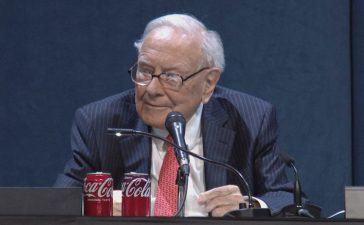Rishi Sunak’s Downing Street team rejected advice a year ago that they should consider the early release of prisoners who had served less than half of their sentences to relieve prison overcrowding, the Guardian has been told by multiple sources.
Discussions took place inside No 10 in June 2023 over the proposal, a version of which was adopted two weeks ago by Keir Starmer’s government.
In July 2023, No 10 was asked again, this time in writing, by Ministry of Justice (MoJ) officials to formally consider the move, sources said. However, it was rejected because of concerns from Sunak’s aides that it would be rejected by Tory backbenchers.
The disclosure indicates that Sunak and his team were aware of the controversial proposals at least eight months earlier than previously thought.
Meanwhile, government figures show that self-harm rates increased sharply in English and Welsh prisons, with a total of 73,804 incidents recorded in the 12 months to the end of March 2024, at a rate of one every seven minutes.
Over the same period, there were 28,292 assaults recorded – a 19% rise on the figures for the previous 12 months.
The Guardian has previously disclosed that Sunak was advised in May to vary the minimum sentencing period, a week before the election, or face “a critical failure” of the criminal justice system.
A source close to the proceedings said: “Officials were adamant that standard determinate sentences were the best way to ease pressure on the system, but Sunak’s advisers overruled it again and again.”
The justice secretary, Shabana Mahmood, has set out emergency measures to prevent the prison system from reaching the point of collapse, with jails operating at 99% capacity since the start of 2023.
The government has temporarily reduced the proportion of certain custodial sentences served in prison from 50% to 40% in England and Wales from September. It has said that it will implement safeguards and exemptions to keep the public safe, with clear release plans to manage offenders safely in the community.
Mahmood laid the blame for the prisons crisis with the previous government.
“Those responsible – Sunak and his gang in No 10 – should go down in history as the guilty men. The guilty men who put their political careers ahead of the safety and security of our country,” she said.
Labour’s scheme has been criticised by Tories including a former immigration minister vying to become the party’s next leader.
Robert Jenrick wrote on X: “The British people did not vote to let criminals off scott-free [sic].”
Sources said that Sunak’s advisers repeatedly rejected similar proposals in favour of other measures including a presumption against short sentences and deporting more foreign national offenders, speeding up maintenance to bring cells back online, and reducing the remand population by putting housing and tagging in place so more people could be bailed.
Requests for a standard determinate sentence scheme were regularly discussed and rejected by Sunak’s aides.
Eventually, the government prioritised the end of custody supervised licence (ECSL) scheme from October 2023 onwards. However, HM Prison and Probation Service staff warned this would only offer temporary relief and could not be seen as a long term option.
after newsletter promotion
Alex Chalk, the previous justice secretary, has confirmed that he prepared plans to release some prisoners after 40% of their sentence and to send fewer people to jail in the first place but these were shelved over fears of a lack of support in parliament.
MoJ officials and Chalk, who served as justice secretary from April 2023, are understood to have repeatedly warned Downing Street that all other levers available to them had been pulled and they would have to go for early release to avert disaster.
A former No 10 aide confirmed that MoJ officials and Chalk had argued for a reduced proportion of certain custodial sentences served last year. But the aide said the demands were rejected on the grounds that Sunak’s government would not have been able to persuade Tory backbenchers to back it.
“The idea of releasing potentially dangerous prisoners made us physically sick.
“What [MoJ officials] have said to Shabana, they said to us last year but we held our nerve and managed the system instead,” the former aide said.
Mahmood has cancelled the ECSL scheme, which has freed more than 10,000 prisoners up to 70 days early, and has ordered an independent review of Sunak’s decisions around early release schemes.
A Conservative spokesman said: “The previous Conservative government always put the safety of the public first.
“We expanded prison capacity and delivered 13,000 new prison places to make sure our prisons continued to function effectively.
“We have always been clear that prisoner release should only be as an absolute last resort, and that government should exhaust all other options before committing to this course of action – and should ensure adequate safeguards are in place to protect the public.”
On Thursday, MPs voted 323 to 81, a majority of 242, in favour of approving legislation to allow the early release scheme.
The shadow justice minister, Matt Vickers, said he remained “deeply troubled” by the plan and the possible dangers to the public”.
Mahmood told MPs that she was “astonished” by Vickers’ remarks. “The shadow minister said he was deeply troubled by the measures, but he was not troubled enough to prevent this crisis from occurring in the first place,” she said.










